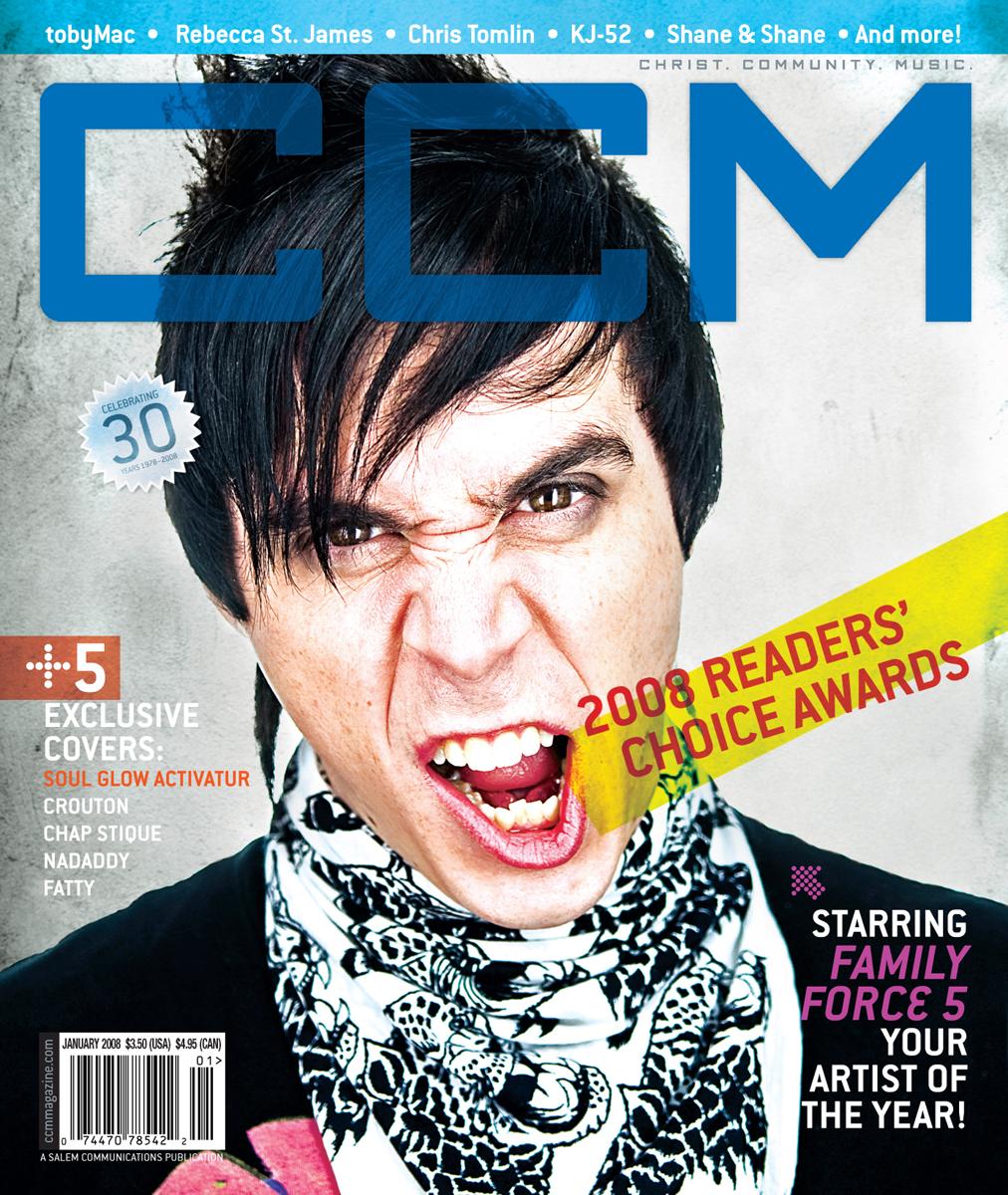 Over at another blog (yes, this borders on shameless self-promotion), I posted a Youtube video and dubbed it the worst Christian music video of the year. It is truly egregious and beyond parody, featuring a rapture-believing pastor, singing an obnoxious tune with doctrinally objectionable lyrics. But the piece de resistence is the setting for the pastor’s crooning. He is apparently out in some part of Florida’s natural wilderness, banging away on his electronic keyboard. Apparently lacking in the pastor or his staff’s production plans for this video was any consideration of the relationship between form and truth. Is this melody the best vehicle for this conviction? Is this voice the most fitting for this tune? Is the Florida everglades the most obvious choice for a music video threatening impending judgment from the Lord of the universe? Should one wear a polo shirt or tails when announcing the apocalypse?
Over at another blog (yes, this borders on shameless self-promotion), I posted a Youtube video and dubbed it the worst Christian music video of the year. It is truly egregious and beyond parody, featuring a rapture-believing pastor, singing an obnoxious tune with doctrinally objectionable lyrics. But the piece de resistence is the setting for the pastor’s crooning. He is apparently out in some part of Florida’s natural wilderness, banging away on his electronic keyboard. Apparently lacking in the pastor or his staff’s production plans for this video was any consideration of the relationship between form and truth. Is this melody the best vehicle for this conviction? Is this voice the most fitting for this tune? Is the Florida everglades the most obvious choice for a music video threatening impending judgment from the Lord of the universe? Should one wear a polo shirt or tails when announcing the apocalypse?
The subsequent discussion at the blog was revealing of the difficulty evangelical Protestants have with thinking about embodiment and formality. Because I had contrasted this video with one made by a Christian – actually Calvinist – rapper, the responses to my post showed little interest in the worst video but decided to defend rap and hip-hop as forms fitting for the expression of Christian devotion. (Some Front Porchers may actually wonder about the difference between rap and Calvinism. It goes like this. Calvinists use fewer expletives than rappers, but Lutherans use as many expletives as rappers but have enough sense not to rap.)
This discussion reminded me of earlier debates in which I’ve also questioned the merits of Christian rock. I don’t know, but it seems relatively obvious that a form of music designed to celebrate the self, exalt youth, and promote drugs and sex is not the most fitting of cultural expressions to contemplate the mysteries of the holy Christian faith. That assessment, of course, does not prevent me from listening (and still doing so) to lots of uptempo music that my parents forbade. But I’d prefer to have worldliness straight, not cut with holy unction.
What also stood out in this discussion is the bankruptcy of evangelical Protestants in the so-called culture wars. Those devout Protestants may be reliable on matters of sex and marriage, but being able to spot the difference between and superiority of “As You Like It” to “Leave It to Beaver” is a consideration that grates against the fundamentally egalitarian soul of most born-again Protestants. It is of course ironic that evangelicals are fairly well known for reviving some interest in classical Christian learning at the same time that their churches have given us some of the worst liturgical music known to the universe. In which case, if evangelicals are going to have trouble drawing the line in worship against Christian rock, will they really be reliable when it comes to evaluating the best texts and artistic forms for educating young people?
The cultural liabilities of evangelical Protestants also has significant political implications. Crucial to the existence and maintenance of a modest republic friendly to front porches is attention to forms and structures of power that are designed to accommodate the particularities of people and place. The problem with such political modesty for evangelicals generally, is that attending to constitutions, separation of powers, characteristics of a people, and geographical realities requires careful consideration of forms. But evangelicals are a fundamentally anti-formal lot. Much of this stems from the born-again experience which is supposed to give the believer an unmediated encounter with the only true and living God. Never mind that this encounter takes place a in body that has forms such as male or female, young or old, Caucasian, Asian, or African. Because an individual soul experiences God immediately, the forms that characterize human existence are mere trifles that only get in the way of a godly time.
This may sound like an overly negative assessment of one group of Americans who has withstood relatively well the sexual revolution of the 1960s. I do not mean to discount that kind of resistance. For it evangelicals deserve credit. But those who look to born-again Protestants for assistance in either the culture wars or American politics should be well advised about the capacity of these believers to understand and appreciate the arguments of conservatives.












This may sound like an overly negative assessment of one group of Americans who has withstood relatively well the sexual revolution of the 1960s. I do not mean to discount that kind of resistance. For it evangelicals deserve credit.
What kind of resistance has that been? Since the sexual revolution of the 1960s, evangelicals were early and enthusiastic adopters of contraception; have rates of divorce roughly equal to the population at large; and “have no problem” with women working outside the home. Only the most hidebound, backwoods, and (to mainstream evangelicals) embarrassing fundy evangelicals have resisted the precise moral and political trajectory taken by Mainline Protestantism, which is to say, evangelicals’ hipper older brothers. They’re just one generation behind the times. It is not resistance; it is at best a speed bump. CCM and attendant “worship wars” are mere symptoms, quite revealing as you point out, but only symptoms.
Steve Nicoloso – You are nitpicking.
the label evangelical is nearly useless without further qualification, in fact it probably does more harm than good, given how poorly it signifies any one specific group of people. it has an academic, theological reference (bebbington comes to mind), it has a political reference with the religious right, it has a historical meaning (concerning funtamentalisms growth and progression in American history). But quite frankly, it doesn’t go very far in actually capturing what is occuring amongst the children of evangelicals, who by that very fact have some evangelical dna in their system. a precious few of these evangelical babies have turned into zealous catholics and orthodox believers, many have lapsed, and and still more think that going to church in a bar is a pretty novel idea. The point being that this term signifies a group of people so divergent that it has lost utility except for some self aggrandizing assault on a horse that has been dead or been marred with terminal cancer for some time.
secondly. i am frankly a little bit tired of all the evangelical/protestant bashing that occurs from people who just started to get an inkling of how inadequate the intellectual arsenal of protestantism is against the ills of modern society. you’re onto something!!!! congratulations!!!!! but i am not sure which is more embarrassing, the potentially futile attempts of protestantism to resist something that it may lack the power/resources to overcome. or the general failure of christians who possess the intellectual/spiritual resources capable of identifying and overcoming the ills of our age (i am thinking of catholicism and orthodoxy here) to muster a hearted attempt to do so. Both lines of reasoning deserve attention; however, it bothers me that only one seems to be pursued on this website.
Evangelical pretty much means “low church protestant”. Yes, it is a widely divergent group, yet remarkably, somehow… they all have a democratic polity, mostly downplay (or eliminate) sacramental observance, tend toward nominalism, and are largely iconoclastic (whether of the ancient, or… erm… more modern school). While it seems improbable that most of these churches are a dead horse, a diagnosis of terminal cancer may well be in order. And if it be cancer, then what of the cause? What more of a cure? Are broead acceptance of contraception, divorce, and non-traditional sex roles completely unrelated? That they are general ills of the society at large is not doubted; but how nearly ought a Christian church imitate the ills of a particular society?
whatever the ills of evangelicalism, of which i made no attempt to defend in my comment, you seem to have some larger problems steve, which, given the content of your response, seem to be either (1) illiteracy, or (2) should you have actually been able to read what i wrote, the inability to comprehend and respond to argument. until these basic intellectual skills are acquired, it might make sense to hold off searching for causes and cures.
if you don’t understand what i am referring to, ill give you some advice:
read my comment. then read your response to my comment, and then realize how your assertions remarkably fall in both of my critiques.
Amen and amen — preach it.
Mr Hart – Correct me if I’m wrong, but I think the main point of your article can be summed up in the phrase “…bankruptcy of evangelical Protestants in the so-called culture wars”. I think that’s a fair observation. Ever go to a Reformed service? No fancy statues, just a plain wooden cross, and hymns that were written 300 years ago. I kind of admire that. Not for me, though. I was “saved” too late in life, and am a Catholic to boot. I still listen to my old Velvet Underground tunes and love a good Roman Polanski film. I may do some time in Purgatory for that, but I have faith that on the Big Day, I’ll be set aside with the sheep and not over with the goats.
I remember some scripture about the “high” being shamed by the “lowly” or something like that. Yeah, makes sense, at least in my experience. All the devout Christians I know (I’m not talking about the ones who only show up at Mass on Sunday, but the ones who go to Vineyard-style services and are really into the born-again thing) have pretty awful taste in anything cultural. And Christian Rock? I cringe at the memory of it. Rock music is pretty much all about sex. Some how I can’t picture the angels playing Sister Ray.
Rock music is not all about sex– that’s a silly statement for anyone to make in 2011. But one thing rock isn’t is Sacred. It has no place in worship, any more than medieval tavern songs did, and we shouldn’t go down the blind alley of hoping that if we make worship “contemporary” and “relevant” we will draw anyone to church who might otherwise take a pass. Church is not and never will be mere entertainment.
Jon, Bruce Springsteen said in a recent interview that the sub-text of all rock and roll is, “Take your pants off.” (And when you get married it’s, “Take your pants off, please.”) So as much as I agree that it’s a bit silly in 2011 to say rock music is all about sex, still, when the Boss describes it this way it’s pretty hard to say the notion is completely without merit.
I doubt Springsteen was being serious, but if so, he’s wrong. I can easily think of a dozen rock songs that have no sexual subtext, and I suspect most people here could too. You can only make “all” rock about sex in the same way the Freudians make evertything we do about sex. I am not a Freudian and, IMO, cigars are usually just cigars.
How is it not sacred? im pretty sure that God, and not you, will be the one to decide that. If people like rock music more than hymns, and want to go out of their way to devote their lives to worshipping god through that genre, theres absolutely nothing wrong with it, and its just as sacred as hymns. It glorifies God, he doesnt have a preference for a certain genre. you can have your opinions on what you want to listen to, but saying that christian rock isnt sacred is ridiculous. what makes the hymns written 300 years ago so special? they were written by normal, everyday people in the popular genre of that time, and by people who just wanted to glorify god. And thats exactly what they are doing today. If people want to listen to Christian Rock instead of the Hymnal, i say go for it, because both have worshipfullyrics. Just because you dont understand or like something doesnt mean you have the right to condemn it or compare it to “medieval tavern” songs. Christian Rock songs are just as sacred as hymns, and if you dont believe me, then find a verse in the Bible that says otherwise, and please enlighten me.
“But those who look to born-again Protestants for assistance in either the culture wars or American politics should be well advised about the capacity of these believers to understand and appreciate the arguments of conservatives.”
Perhaps it’s possible to consider the impact of John Dewey and William James upon the evangelical mind. Both rooted their understanding of what constituted “reality” within individual “experience”. At the heart of the evangelical churches through which I’ve traversed over the years, the penultimate reality seems to be that of the individual testimony. Such an emphasis on the individually transformed sinner seemed to be more compelling than the actual risen Lord Jesus. If one reads just a smattering of the “emergent” movement this same sort of indivual prophet of the personal, inner experience is sitting in the seat of Moses. Daniel Bell wrote of this trend of the “passions” back in the 1970s, suggesting the modern ethos to be driven by passionate experiences, not doctrine.
Yeats I think hit on this same theme at the close of WWI in the Second Coming.
You mention what you consider the evangelical penultimate reality. What, to your mind, is the evangelical ultimate reality, and why is any penultimate reality an error if the ultimate one embodies truth?
Andy
I suppose I thought it would be obvious to most that the “ultimate” reality is Christ Jesus; the Alpha and Omega. I was simply mentioning I thought the emphasis on personal testimony had almost become the “final word” in much of the contemporary evangelicalism of which I’d been a part. The emotive, personal aspect of the testimony seemed to give them a sort of final, or sort-of/almost-final say theologically. Not to diminish one’s personal testimony, of course, but simply considering the emphasis on the individual in a culture that one might classify as hyper-individualistic does cast a pall over doctrine; something to which the medium of entertainment cannot give proper expression. I did not mean to suggest that there wasn’t any sort of truth within one’s testimony, just that one’s personal experience seemed to overstep its authoritative, theological boundaries. The powerful testimony in and of itself seems to have a cultic sway. Emotive, moving drama sometimes supercedes doctrine. What I’ve found quite fascinating is that I’ve seen this sentiment of passionate expressionism superceding traditional orthodoxy written about back in the 1960s and 70s in the sociological writings of both Daniel Bell (Cultural Contradictions of Capitalism, Coming of Post-Industrial Society, The Winding Passage) and Philip Rieff (Triumph of the Therapeutic).
I hope that answers your question. Thanks for asking.
This type of specious reasoning that is based on broad generalizations and poor assumptions reminds of early twentieth century writings (by white men) about the “Negro brain.” The essay is enlightening in one respect though. I thought this type of unintellectual screed was written about Roman Catholics, not by them.
Speaking of poor assumptions: I expect it will come as a surprise to the author of “Without Form and Void” that he is a Roman Catholic.
Indeed. Thank you for pointing that out, Jason. I enjoy the website, but I cannot stand the sectarian tone of some articles. My improper knee-jerk reaction aside, Mr. Hart’s essay is still lame.
The generalization problem in the essay comes from Mr. Hart’s use of the word “evangelical,” which a reader defined below as “low protestant,” whatever that means. I think most people still use that word to describe a hugely divergent group of Protestants that would include Rick Warren to N.T. Wright. So using “evangelicals” to mean “lowly” Protestants who like Christian rock and wear jeans to church is too broad. It’s not a helpful label. But more importantly, it’s dangerous to engage in this sort of stereotyping.
There is also a problem with Mr. Hart’s use of “Christian rock.” A lot could be said about this, but suffice it to say, it’s also vague and undefined–another poor generalization. Also, it’s just as lame to blame poor theology on Christian rock as it to blame Led Zeppelin for people leaving the faith. We know Christian rock is pretty weak, but Hart’s extrapolation is weaker.
So assuming that evangelical means “low Protestant” then the “culture war” argument is not well reasoned. The mainline Protestant denominations all embraced contraception and abortion before their “lowly” non-denominational counterparts. And now, it’s the mainline Protestant denominations that seem hellbent (literally) on ordaining homosexuals. By Mr. Hart’s reasoning, we should draw a relationship from traditional Protestant form of worship to mainline Protestant’s theology of the body (or the lack thereof)? And doesn’t using the politically charged term “culture war” perpetuate the “low” Protestant thinking Mr. Hart is trying to ridicule? Aren’t “low” Protestants the only ones fighting it?
If we are going to have this discussion let’s talk about how the Church is to be the politics and be the economy, and stop talking about waging a Christian “culture war” or getting Christians into “American politics.” That’s like, sooo 1993.
Perhaps the very medium of Internet communications technologies curtails any fundamental development of sound theological argumentation and only permits for broad generalizations.
“TURNING and turning in the widening gyre
The falcon cannot hear the falconer;
Things fall apart; the centre cannot hold;
Mere anarchy is loosed upon the world,
The blood-dimmed tide is loosed, and everywhere
The ceremony of innocence is drowned;
The best lack all conviction, while the worst
Are full of passionate intensity.”
Well, see, the problem is that this guy has absolutely no idea what he is talking about. Yes SOME rock music is about sex and drugs, but its more about the lyrics, and less about the generalizations you’re making. You can’t just say that that is all christian rock is, when you have no examples of that. And who is anyone to decide whats worship music, and what isn’t, except for God. The Bible tells us to make a joyful noise unto the Lord. So i’m pretty sure that you should leave it to God to decide, before you make ridiculous accusations. Listen to any Christian rock; people can worship God any way they choose, and just because you are more partial to hymns does not mean you have any right to condemn others for worshipping in their own way.
So it goes without saying Darryl ain’t completely wrong. But for a more balanced view, see ME:
http://bigthink.com/ideas/26687. I really think you Porchers are short on appreciation on the upsides of the evangelicals. And I’m no evangelical and I’ve only seen megachurches (except for THE mega [Catholic] churches on TV.
Nevertheless, contemporary Christian music is what you get when bad art screws bad theology.
Yawn…I thought this was a silly and outdated argument back in the 70s when people were condemning me to hell for listening to rock music and also for wanting to enjoy this new thing called “Christian rock.”
Comments are closed.